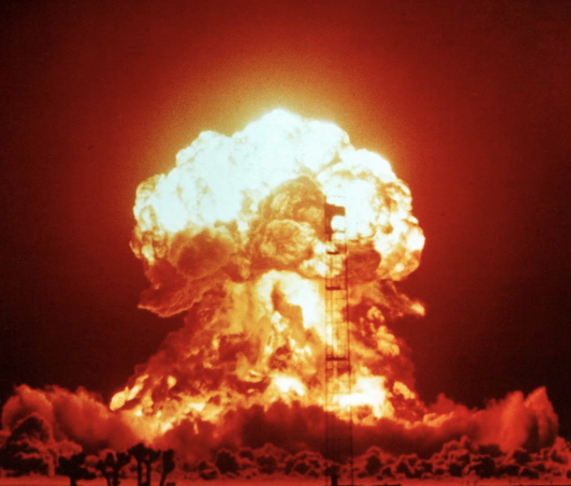In political discussions with friends, family, or acquaintances, terms are often thrown around such as “neocons,” “elites” or even “the people who run the world.” While each term has a different meaning, it is easy to use them without thinking about who they mean. What are their names? How much does their influence affect foreign policy? Furthermore, how much does their influence take away the power from the people?
“Neocons,” short for neoconservatives, refers to a group of conservatives that emerged from the democratic party in the 20th century, unhappy with the party’s increasing shift toward pacifism. Often called the “warhawks,” they pushed the Vietnam War, the Iraq War, and the exertion of United States military power around the world, effectively turning the United States into the world’s police, as it remains today. However, after the debacles in Iraq and Afghanistan, it was beginning to look like neoconservatism was in decline in terms of credibility, effectiveness, and popularity. One of the key positions that won Donald Trump the 2016 election was his promise of ending “forever wars.” Trump ordered the withdrawal of 2,000 troops from Syria, met with Kim Jong Un in North Korea, and organized total troop withdrawals from Afghanistan and Somalia. Yet the neocons that surrounded him such as National Security Advisor John Bolton, Secretary of State Mike Pompeo, U.S. Special Representative for Iran and Senior Policy Advisor to Secretary of State Brian Hook, and Senators Graham and Cotton found an opportunity to push Trump’s foreign actions in their preferred direction in the country of Iran. On January 3rd, 2020, Trump ordered a strike on Iranian General Qasem Soleimani. The decision received condemnation from congressmen such as Bernie Sanders, who called it an “assassination,” yet was praised by others such as Liz Cheney, who called it “decisive action.” This critical success for the neocons showed that even the arrogant and self-assured President Trump could be swayed by their influence. In today’s Biden administration the neocons seemingly dominate the US foreign policy scene, aggressively aggravating situations with the world largest powers in Ukraine and Taiwan. Between Secretary of State Antony Blinken dismissing a ceasefire in Ukraine, National Security Advisor Jake Sullivan endorsing missile strikes on Crimea, and President Biden calling Chinese President Xi Jinping a “dictator,” it is clear that the current administration seeks only to escalate the major and potential conflicts that threaten the stability of the world. The current congress is no better, if not worse. Neoconservatism has infected the most powerful congresspeople in both political parties. Representative Nancy Pelosi, Speaker of the House at the time, visited the island of Taiwan (considered part of China under official US foreign policy) without the permission of the government of the People’s Republic of China. Additionally, a bipartisan coalition of congresspeople swiftly silenced dissenting voices on the delivery of arms to Ukraine. In October of 2022 the Congressional Progressive Caucus, led by Representative Pramila Jayapal, sent a letter urging President Biden to “engage in direct talks with Russia” to “help bring an end to the war in Ukraine.” At first it seemed the liberal values and the democratic party that was classically anti-war had not yet been lost. However, after pressure and outrage from other congressmen, they quickly caved and withdrew the letter. From that point on dissent in the Democratic Party was virtually nonexistent, while a divide has grown in the Republican Party between those who support further military aid and others who have begun to grow weary of furthering the conflict with the use of American taxpayer dollars. However, Senate Minority Leader Mitch McConnell and House Speaker Kevin McKarthy maintain the ability to keep their party in line, comfortably passing bipartisan military aid bills through the two houses. Since the beginning of the conflict the estimated casualties of the Ukrainian military have been 350,000, civilian casualties have been approximately 20,000, and Russian military casualties are over 200,000 according to the Kyiv government. Additionally, military aid from various countries to Ukraine has escalated to depleted-uranium rounds, long-range missiles, tanks, fighter jets, and the Biden Administration is now considering sending cluster munitions. On an even larger and more dangerous scale, Russia has moved tactical nukes into Belarus and Poland has requested to be a nuclear host country for NATO. Current proximity to nuclear annihilation is comparable only to tensions at the height of the Cold War.
As easy as it is to criticize leadership and decision-makers, it is critical to delve into the origins of foreign policy. The main drafters of foreign policy are think tanks from universities, institutions, and governments. They hypothesize scenarios, analyze relations, and suggest actions. From there, foreign policy is chosen and implemented by the State Department. Yet one has to delve even further to find who is really behind the crafting of foreign policy. This can be done by looking at the corporate sponsors of the major think tanks*. A look at the donor page on the think tank websites will show that virtually every major think tank issponsored by big banks, major financiers and investors, the oil industry, the pharmaceutical industry, the arms industry/military industrial complex, and the mainstream media. Similarly, many of the aforementioned industries are donors to congresspeople and have lobbyists in congress. One can reasonably point to these as the true influence behind foreign policy and decision-making. One can also point to these as the underminers of democracy and the power of the people. The people do not vote for or elect those that pour money into the decision-making process and system, and are often unaware of the role they play. Yet to delve even further is to enter a realm of guesswork, uncertainty, and even conspiracy. One can point to the heads of said corporations or perhaps their shareholders, but to hypothesize about those even higher than them is murky to say the least. These are the alleged elites and rulers of the world, who live in shadow and outside the public’s view. Perhaps the most common conspiracy theory is of the Illuminati, the alleged secret society of elites that rule the world. However, speculation is a shaky basis on which to ground one’s ideas and opinions.
The best one can do is to create action and change among the visible and known issues in the system. The easiest way to do so is to be aware, informed, and to educate others about the path that we are on, and why we are on it. No longer can the media be trusted to properly inform the public without bias or agenda. The responsibility now falls on the people to be wary of escalation and its consequences. Every life lost as a product of the pro-war agenda is a tragedy, and the dangers of nuclear war cannot be understated.
*Below is a list of the major corporations of the previously mentioned industries that sponsor/donate to the following think tanks: The Atlantic Council, Chatham House, Council on Foreign Relations, Brooking Institutions, and the Carnegie Endowment for International Peace.
Banks/Financers:
- JP Morgan & Co
- BlackRock Investment Management (UK) Limited
- Goldman Sachs International
- Morgan Stanley & Co International Ltd
- Investcorp
- Bank of America
- HSBC Holdings plc
- Intesa Sanpaolo S.p.A.
- Mitsubishi Corporation
- Chris Rokos – Rokos Capital Management
- Citi
- System Capital Management
- Blackstone
- PayPal
- Mastercard
- Wells Fargo
- Visa, Inc.
Oil/Energy Industry:
- BP plc
- Chevron Ltd
- Crescent Petroleum
- ExxonMobil Corporation
- Shell plc
- Eni S.p.A.
- Equinor
- Reliance Industries Limited
- BHP
- General Electric Company
- Sempra Energy
- BTG Pactual
- TotalEnergies
- Tullow Oil
- ConocoPhillips
- TotalEnergies Washington DC Representative
- Pharmaceutical Industry:
- Pfizer, Inc
- Merck Group
- Bayer
- Royalty Pharma
- Johnson & Johnson
- Arms Industry/Military Industrial Complex:
- Lockheed Martin
- Leonardo S.p.A
- BAE Systems plc
- General Atomics Aeronautical
- Raytheon Technologies
- SAAB
- Media/Technology:
- BBC
- CBS News
- Comcast NBCUniversal
- The Guardian
- Bloomberg
- The Economist
- Telegraph Media Group
- Thomson Reuters
- Twitter, Inc
- TikTok
- WhatsApp, Inc.
- META
- Microsoft
- Apple
- Dell Technologies
- Other:
- Bill and Melinda Gates Foundation
- Walmart
- Amazon Web Services
- PepsiCo
- Nike, Inc
- Rothschild Family



